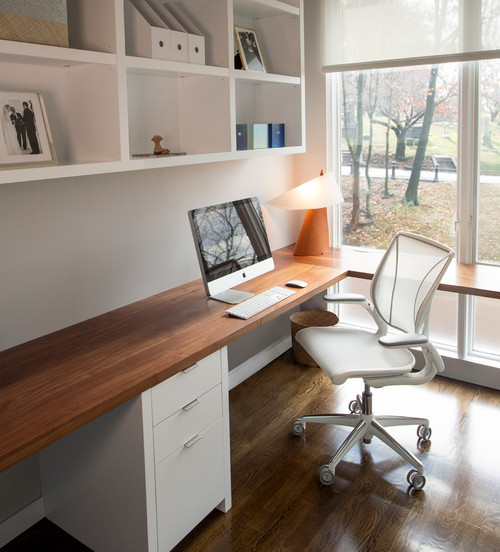
Is This the Perfect Time to Create a Home Office?
Around the globe, the coronavirus pandemic has prompted people to view their homes with a different set of priorities. If you’ve been working from home during this time, a dedicated home office may have jumped to the top of your renovation wish list.
After all, the pandemic has changed how business is conducted, possibly permanently. For the first time in history, entire nations encouraged much of their workforce to work from home. Overnight, telecommuting became mainstream.
When things return to “normal,” the chances are high that many individuals will continue working from home—or dedicating at least some of their office hours to telecommuting. Employers and employees both have reasons to prefer the work from home arrangement.
Even if you don’t have a personal need for a home office, it may be worth creating one, in terms of improving your home’s resale value.
Savings for Employers
The costs associated with company office space go beyond paying the rent or a mortgage. Maintaining an office also includes heating and cooling expenses, powering lights and computer equipment, managing any kitchen or break rooms, and cleaning and sanitizing spaces.
Employers can reduce many of these expenses by keeping workers in their homes. At a time when a significant number of companies are trying to recover from economic hardships, it’s essential to find new and creative ways to cut costs, especially in the short term.
Time and Money Savings for Workers
Workers who don’t have to commute gain more personal time at the beginning and end of each workday. Their expenses are reduced for everything from transportation and office clothing to the cost of eating lunch out.
Additionally, a home office may offer a tax deduction on income taxes if your office is used exclusively for business, and you’ve dedicated the space for your employer’s convenience (instead of your own). Check with a tax professional to see if you qualify.
Typically, the use of a home office must be:
- a condition of employment
- necessary for the employer’s business to properly function, or
- needed to allow the employee to perform his or her duties properly.
Home Office Renovation Considerations
Until recently, home offices were often a way to creatively “stage” a small bedroom or a bonus room. Now, a dedicated home office may be a feature that appears on the “must have” portion of a potential buyer’s wish list.
What features should be included in a home office? The essentials include sufficient power outlets for 110W plugs, as well as USB options. Depending on the business, you may also need upgrades for high-speed internet, extra cooling for electronics, or landline phone services.
If possible, a home office should be situated with an attractive exterior view. You may need to position window coverings so that early morning or late afternoon sunlight doesn’t create difficulties viewing a computer screen or participating in video conferences.
You may need to improve the general lighting in your home office and add task-specific lighting at your desk. Built-in storage and desk systems may be desirable, as is additional soundproofing. Be careful, however, about investing excessively in permanent furnishings that can't easily be removed in case a future buyer would rather convert your office space back into a bedroom.
The best home offices create a clear division between “work” and “home.” Doing so helps prevent family interruptions during the day, while also allowing home workers to separate themselves from the job at the end of the day—step out of the workspace, close the office door, and “enter” their home to enjoy time with family.
Home offices can provide a physical boundary between work and home. This is what an increasing number of telecommuting workers will want when they are ready to buy.
Creating a dedicated home office space can make your current home life more enjoyable—and may improve your bottom line when you are ready to sell.

